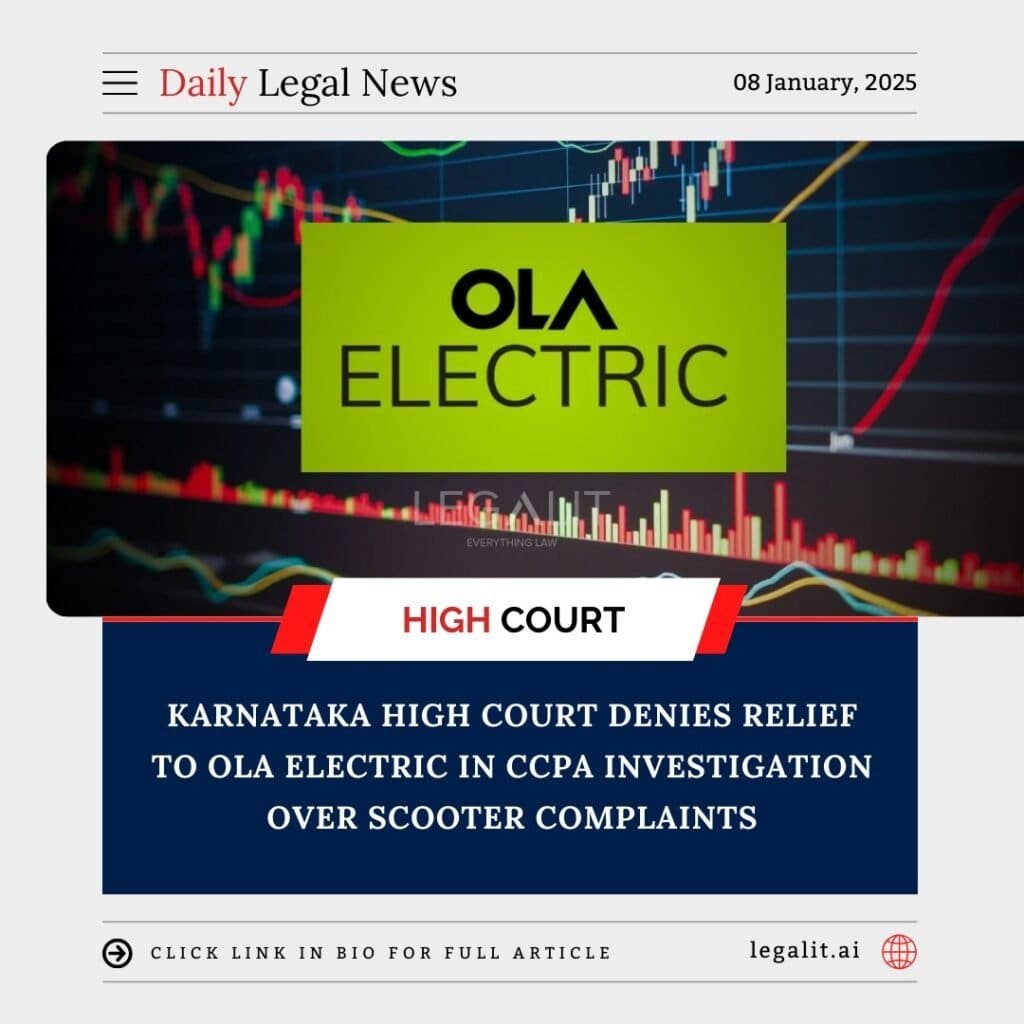
In a notable decision, the Karnataka High Court has refused to grant relief to Ola Electric in an ongoing investigation by the Central Consumer Protection Authority (CCPA) regarding complaints related to its electric scooters. The investigation follows multiple consumer grievances regarding technical issues, safety concerns, and poor customer service associated with the electric scooters. The ruling has significant implications for consumer protection laws and highlights the growing scrutiny of electric vehicle manufacturers in India.
Background of the Case
Ola Electric, a prominent player in India’s electric vehicle market, has faced numerous complaints from customers regarding the performance and reliability of its scooters. Issues such as battery failures, malfunctioning components, and poor after-sales service have been cited by several customers, leading to a formal investigation by the CCPA.
The CCPA, tasked with enforcing consumer protection laws, initiated the probe to assess whether Ola Electric had violated consumer rights by selling defective products or failing to provide adequate customer support. In response, Ola Electric sought legal recourse to stop the investigation, arguing that the complaints were either unsubstantiated or were not indicative of a larger problem with its products. However, the Karnataka High Court dismissed the company’s plea, allowing the CCPA probe to proceed.
The Court’s Rationale
In its ruling, the Karnataka High Court emphasized the importance of consumer rights and the need for manufacturers to address grievances raised by customers. The court noted that the CCPA had the legal authority to investigate complaints related to defective goods and services, especially when consumer interests were at stake. The bench stated that the investigation was part of the CCPA’s mandate to ensure that consumers are not subjected to unfair practices or unsafe products.
The court also rejected the argument made by Ola Electric that the complaints were isolated and not representative of the company’s overall product quality. It affirmed that the authority had the right to probe whether there were systemic issues affecting consumer safety and satisfaction.
Implications of the Ruling
1. Consumer Protection in the EV Market
This ruling reinforces the importance of consumer protection in the emerging electric vehicle market. As more consumers opt for electric vehicles, manufacturers are under increasing scrutiny to ensure that their products are safe, reliable, and backed by strong customer service. The decision sends a message to the industry that consumer grievances must be taken seriously, and any attempts to bypass investigation or accountability will not be tolerated.
2. Legal Oversight of Electric Vehicle Manufacturers
The ruling may set a precedent for greater legal oversight of electric vehicle manufacturers in India. As the EV industry continues to grow, authorities are likely to intensify their focus on ensuring that these vehicles meet safety standards and are free from defects that could harm consumers. This case could lead to stricter regulations for the electric vehicle sector in the future.
3. Impact on Ola Electric’s Reputation
The ongoing investigation and the refusal of relief by the court may affect Ola Electric’s reputation in the market. As consumer confidence plays a crucial role in the success of electric vehicle companies, Ola Electric will need to address the concerns raised by the investigation and work towards improving the quality of its products and services to mitigate any damage to its brand.
Conclusion
The Karnataka High Court’s decision to allow the CCPA investigation into Ola Electric’s scooters to continue highlights the judiciary’s commitment to safeguarding consumer interests. The ruling underscores the need for companies, especially in emerging sectors like electric vehicles, to prioritize quality and customer satisfaction. As the investigation progresses, it could have broader implications for consumer protection and the regulation of electric vehicle manufacturers in India.